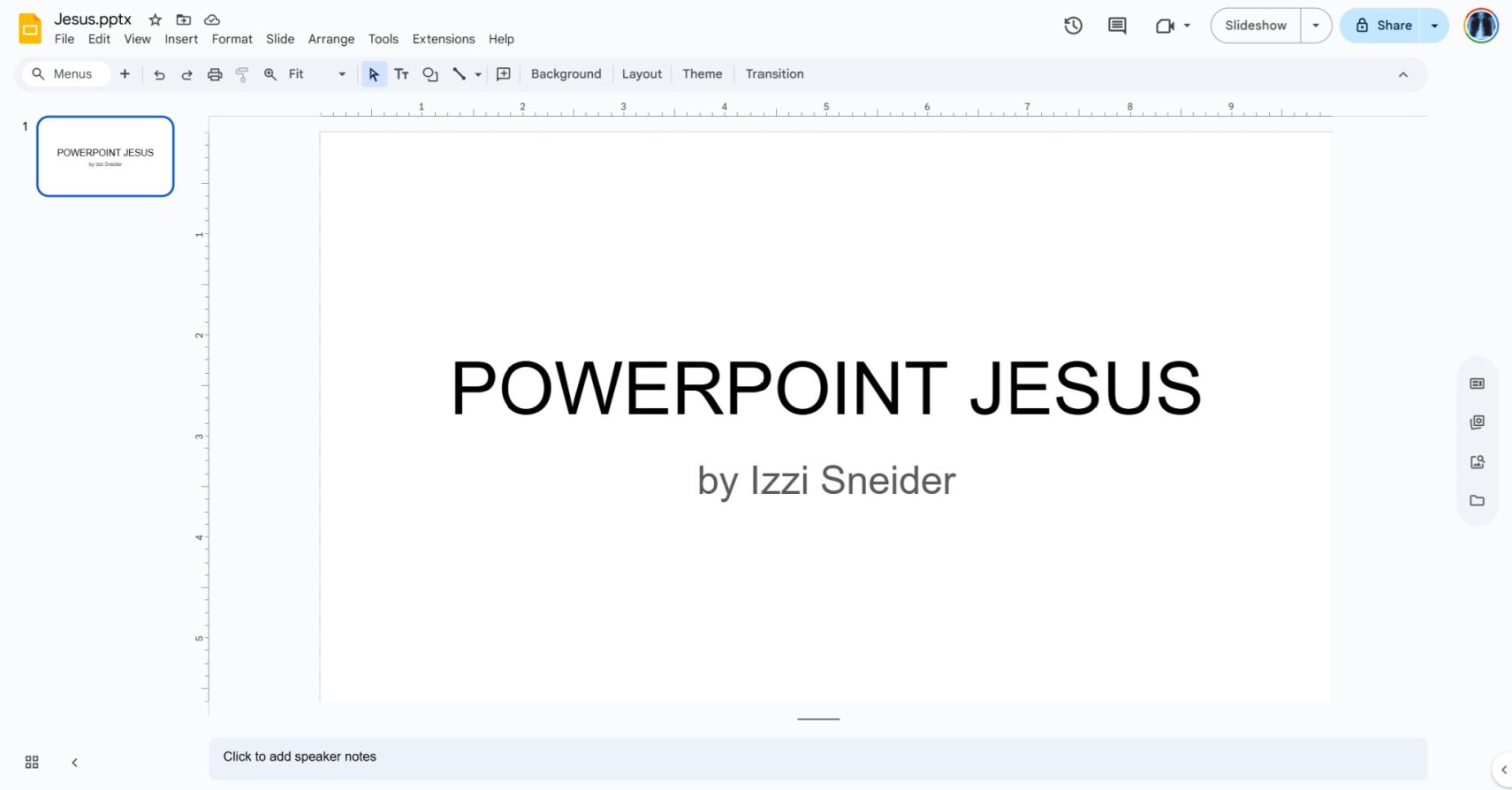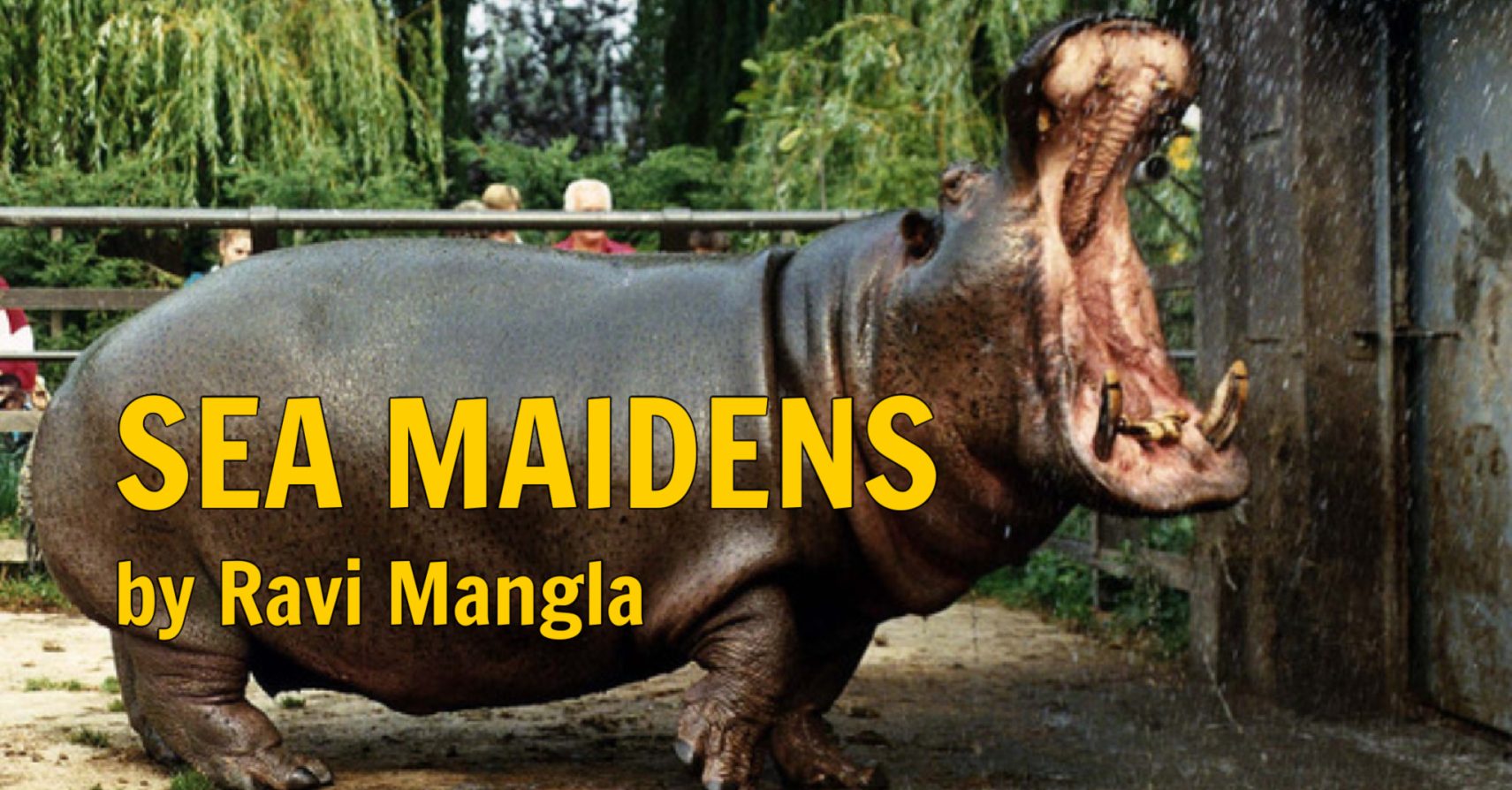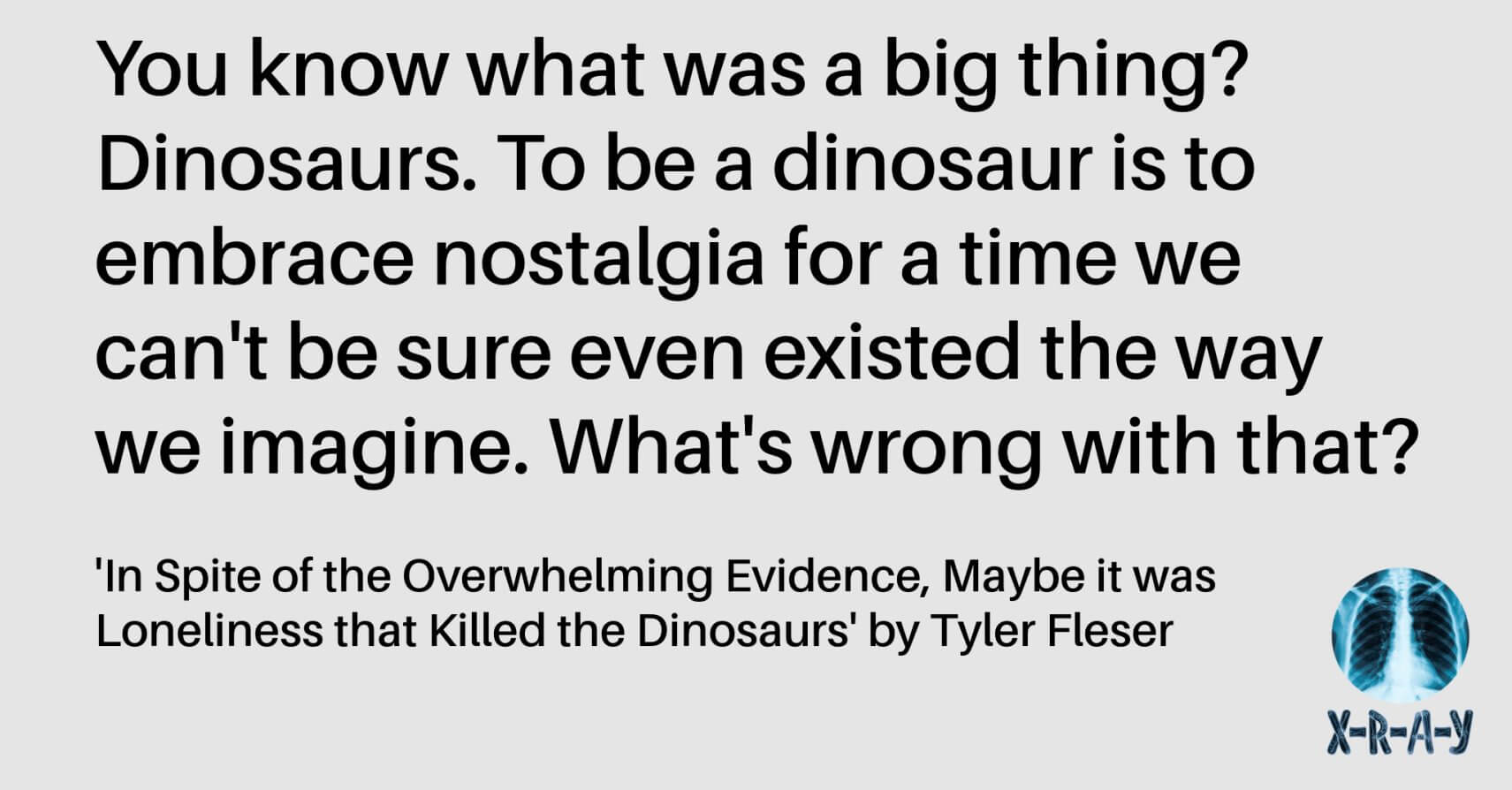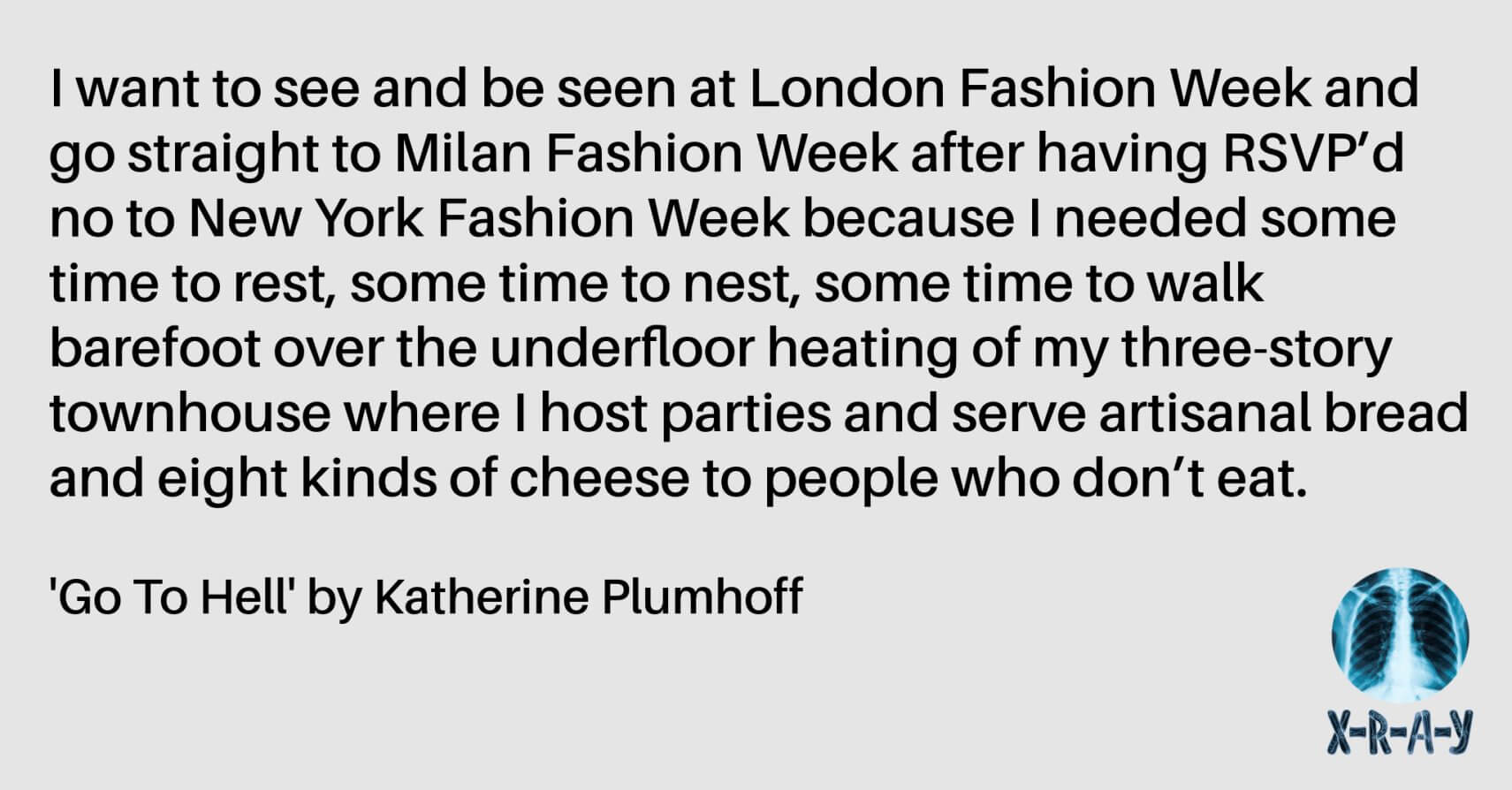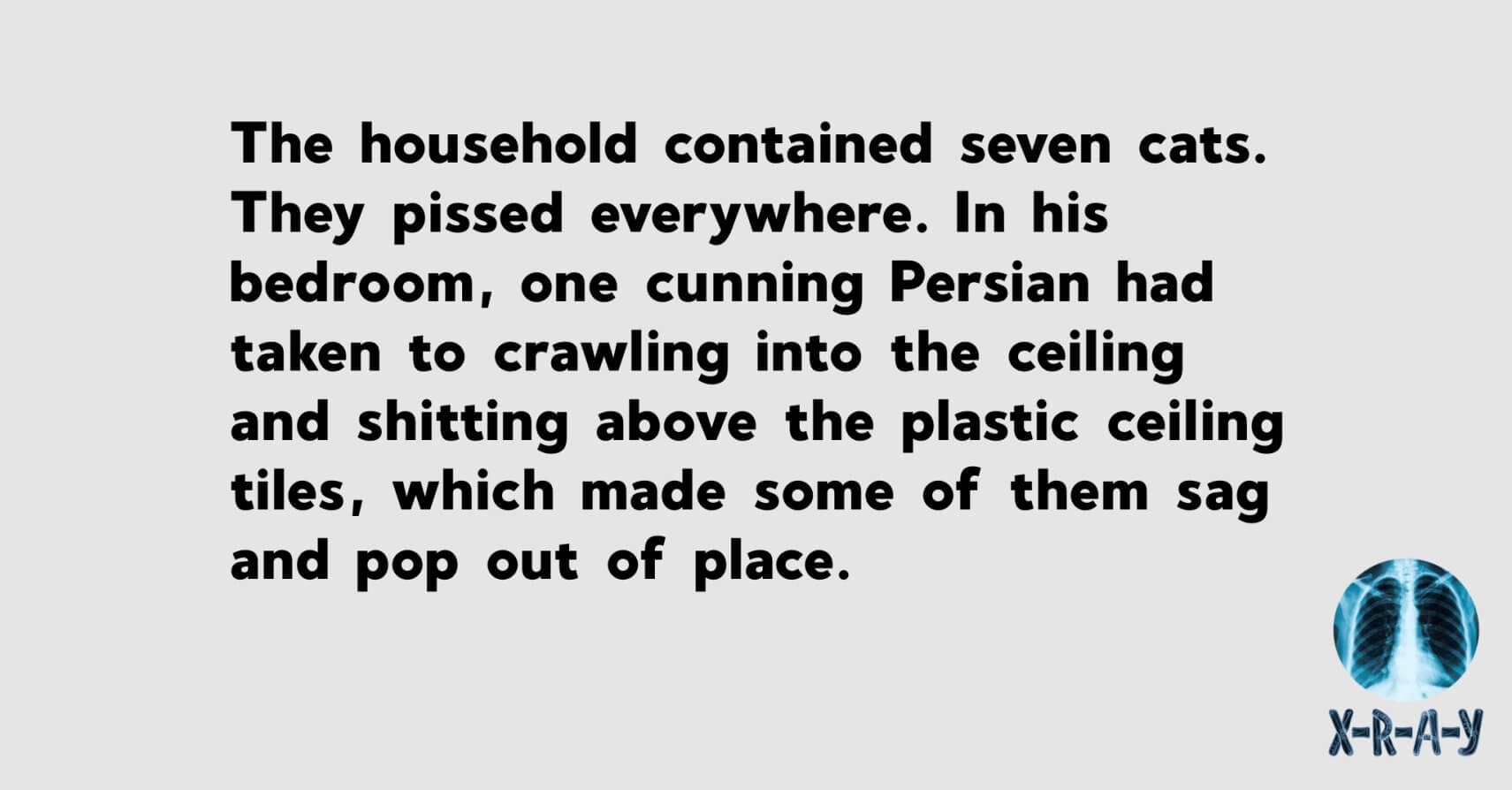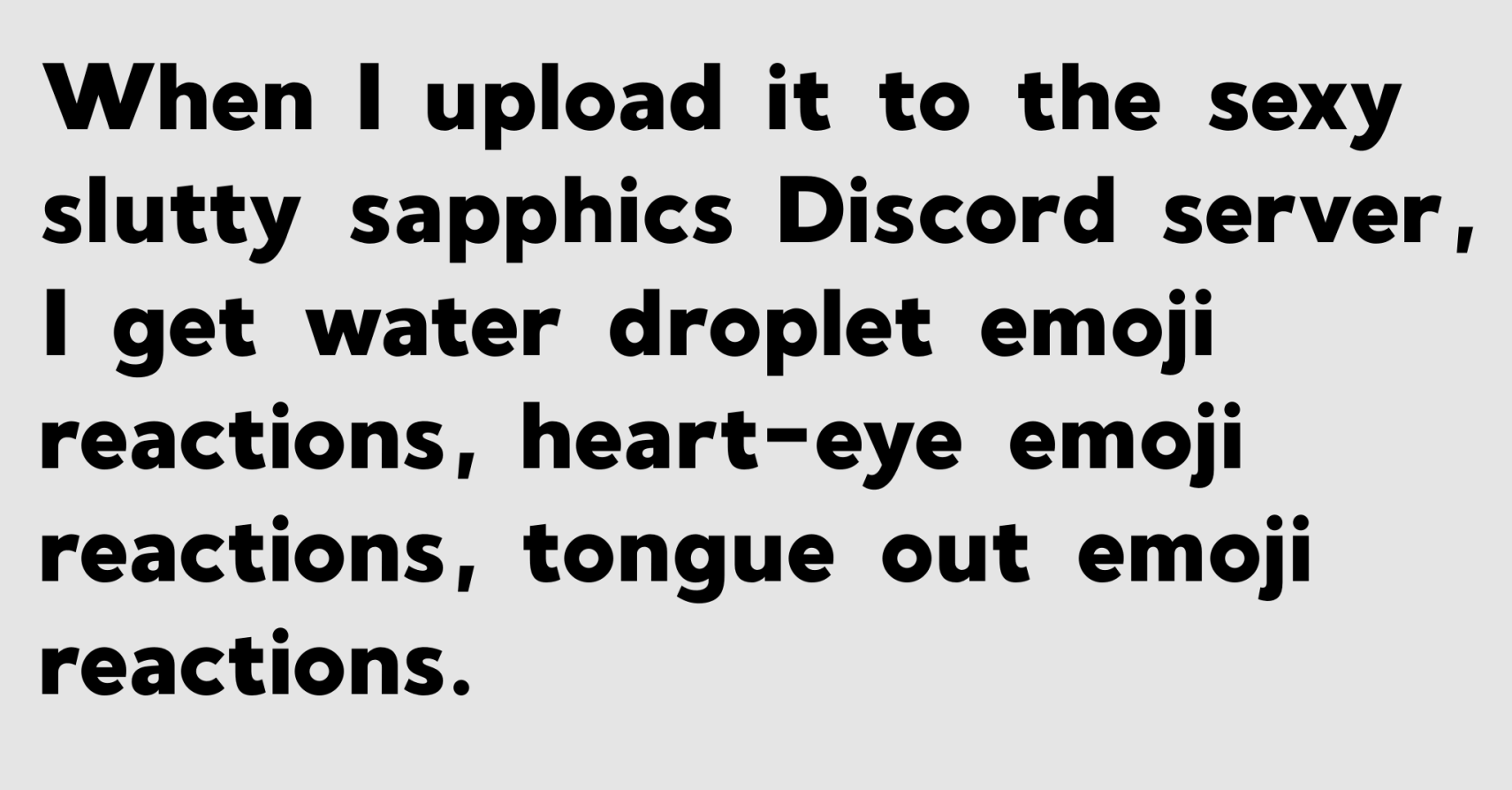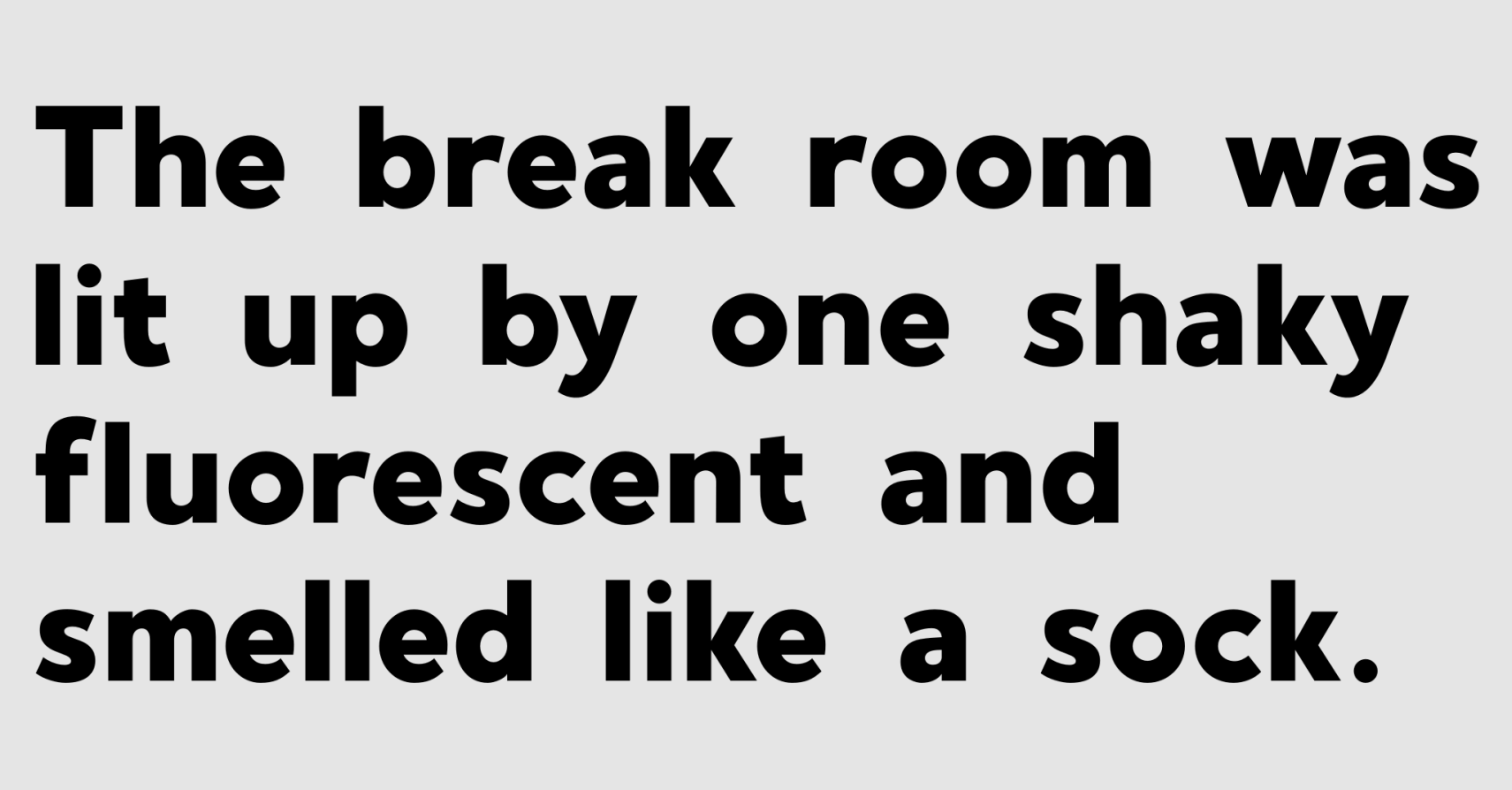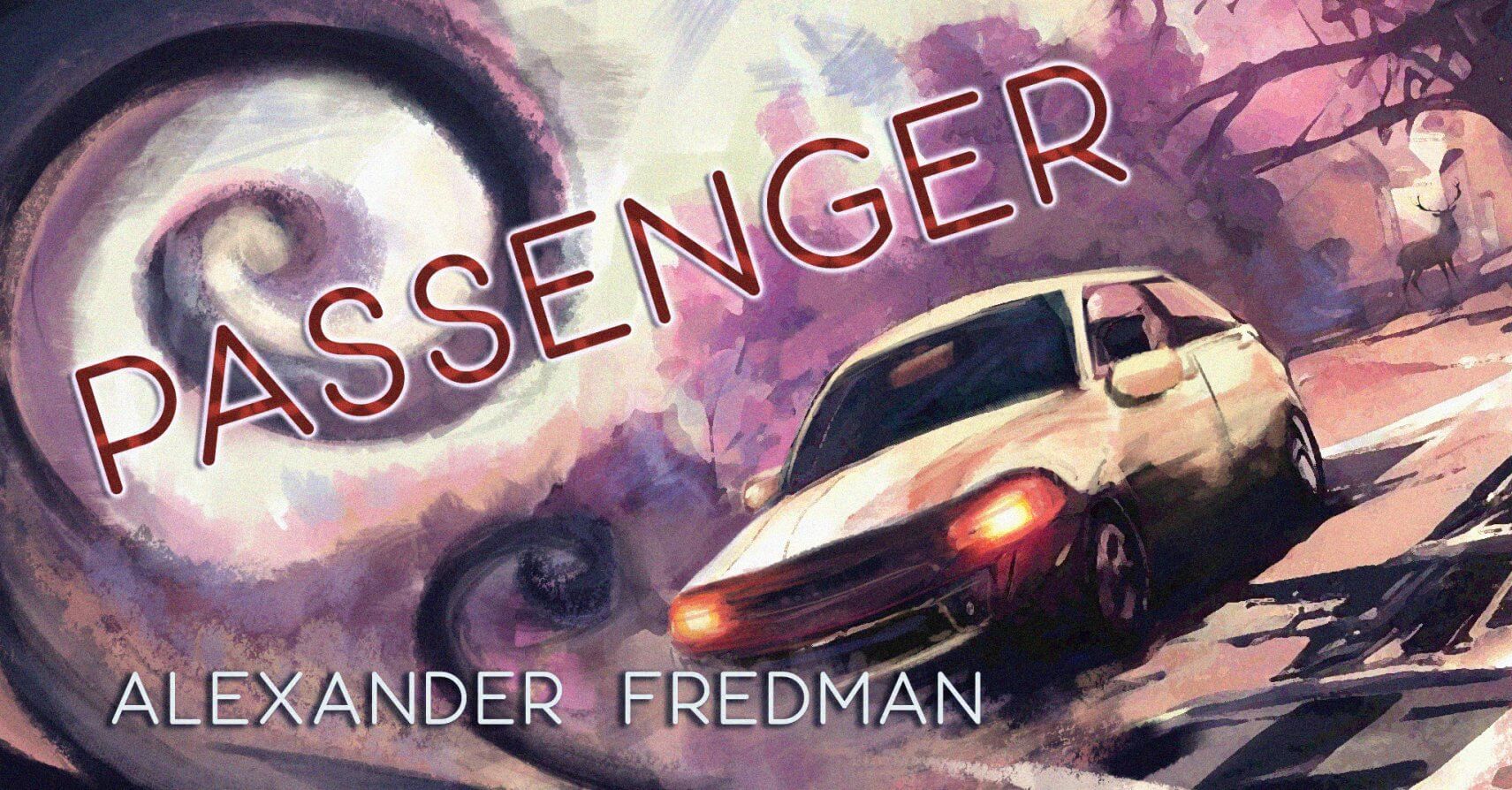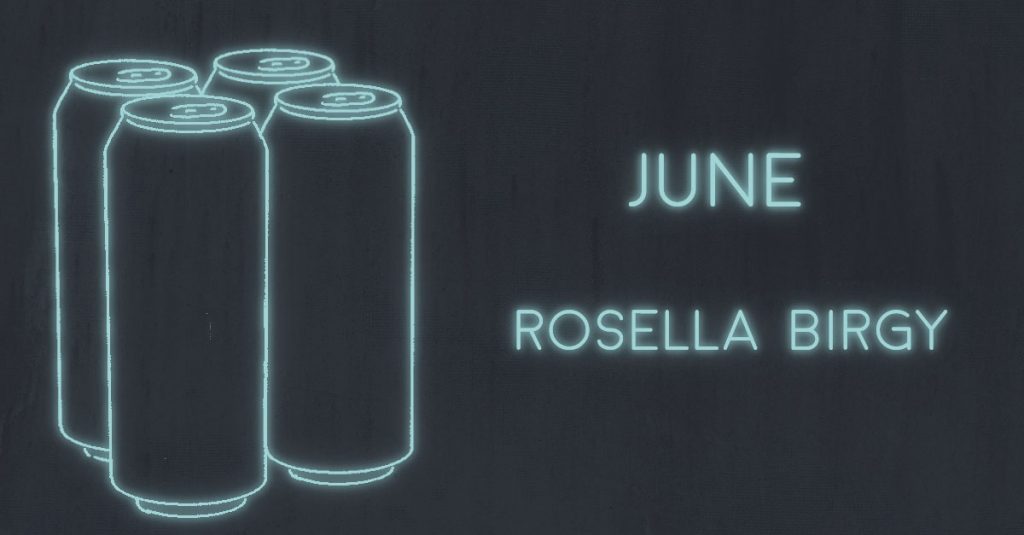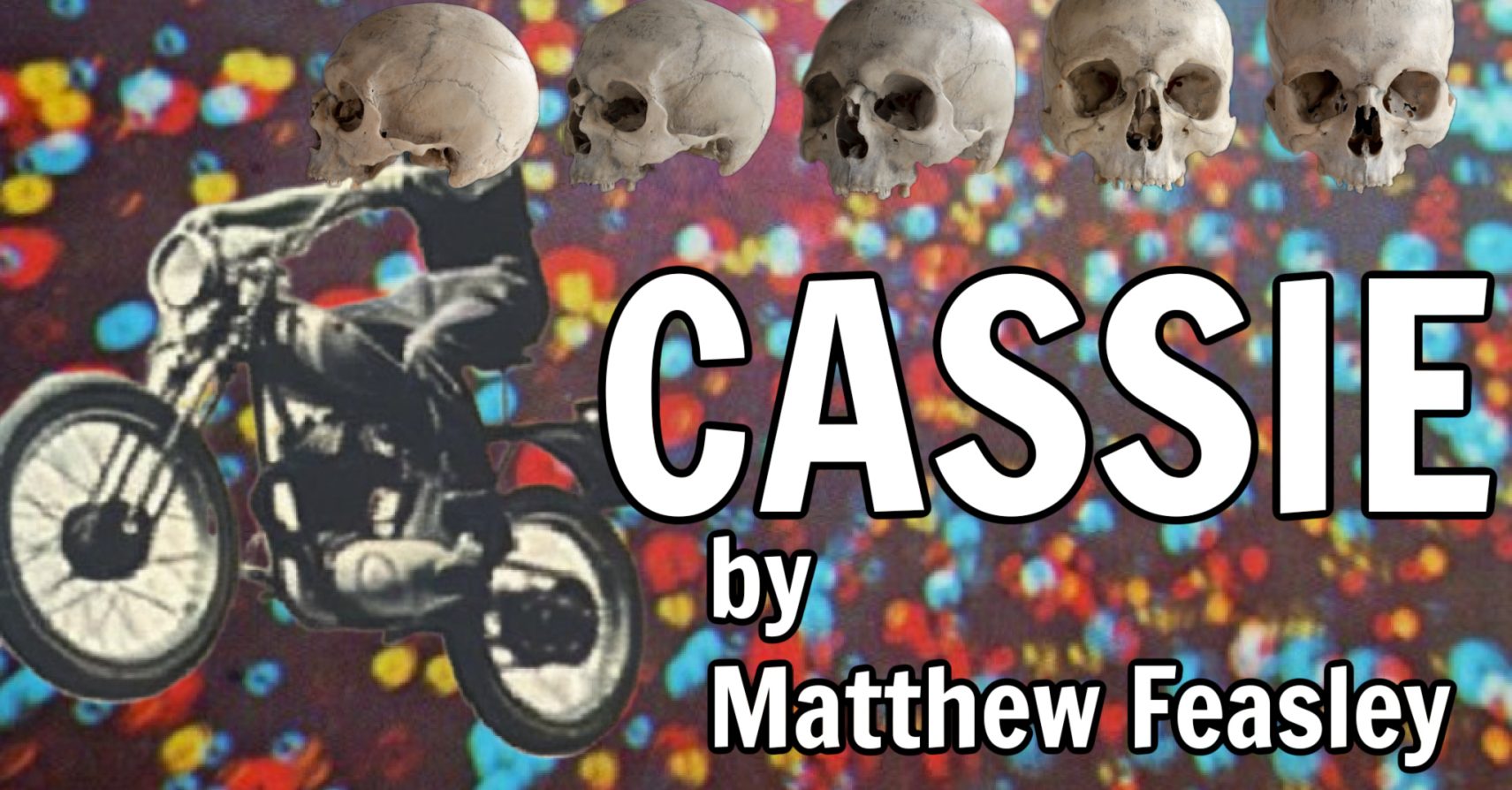
CASSIE by Matthew Feasley
***
After that he was different of course. The bones eventually healed but his head never did. No more state fairs, no more jumps. And Cassie was different too. She threw away all those shirts because no one wanted them anymore, especially her. They sold his motorcycles to pay the hospital bills. He would shuffle through neighborhoods, never lifting his feet. Sometimes barely dressed. People whispered in their yards about him until it wasn’t interesting anymore. Finally he took a shotgun into the basement and finished what the crash had begun. The police took most of the mess away, but the blood was still there. Shards of bone were left behind too, some stuck in the ceiling tiles even. I heard my dad screaming into the phone the next day, furious. “Because I would’ve done it myself, Frank, for fuck’s sake!!!” He came out of the kitchen, eyes wet, shaking his head. “That poor girl...’’ They’d let Cassie clean it all up herself because she and Luann couldn’t afford someone else.***
I followed Cassie down to the creek behind the funeral home. She lifted her dress over the tall grass along the bank. The first time I’d seen her in a dress, or a necklace. She took off her shoes and put them on a large rock, then stepped in. She bent down and caught a few tadpoles in her cupped hands. That time of year there were thousands of them. We’d collected them together as little kids. “Lonesome in numbers...” I didn’t know if she was talking to me or the things squiggling around in her hands. She looked up. “It’s something my dad used to say. That there are so many people it can make you lonely sometimes. Like these things...just too many of them to mean anything. C’mere...” She let the tadpoles go and took off her necklace. It was a delicate gold chain with a dull, white pendant shaped like an arrowhead. “Gimme your hand.” She pressed the sharp edge of it against her palm and drew blood. I asked her what it was. “A shark’s tooth. My dad gave it to me.” It didn’t look like any shark’s tooth I’d seen. I gave her my hand. She squeezed hers hard against it and I felt our blood mix. We watched it drip from our hands and disappear into the water. She asked me if it hurt and I shook my head no. I looked at her and saw she was crying. That’s when I knew it wasn’t a shark tooth between our palms; it was bone.
